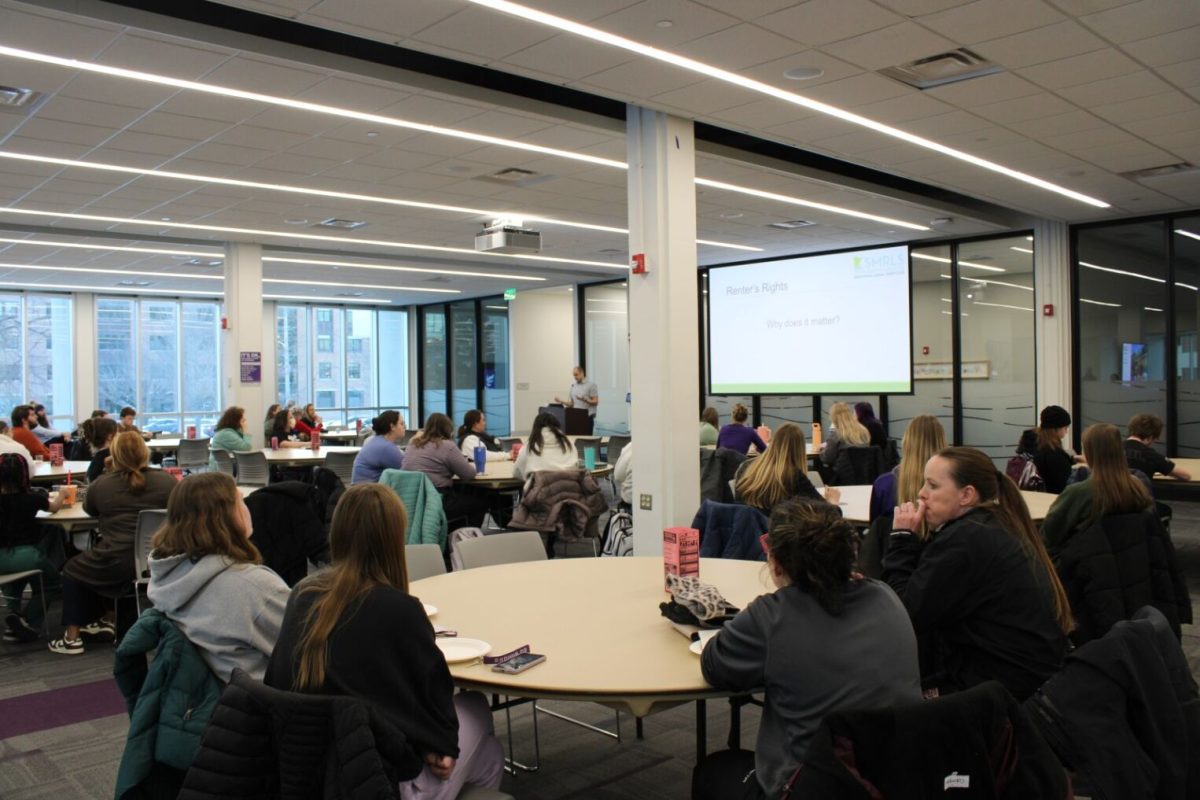Budget cuts cause fear for campus programs

October 23, 2019
As Winona State University students and staff continue to receive news on budget deficits and potential cuts, many program leaders are being forced to decide which parts of their organizations are most crucial. The RE Initiative is reliant upon both the university and a federal grant to stay open, and if either falls through, the services could be in jeopardy.
Scott Ellinghuysen, vice president of finance and administration, sent two emails; one to university students and one to the whole campus. In his email to students, he broke down what the previous email meant for them.
“The Winona State General Fund Budget, which provides for the classes, staff and infrastructure of the University, is around $100 million dollars,” Ellinghuysen said. “The budget deficit being projected for Fiscal Year 2021 amounts to a 3% to 5% reduction.”
The RE Initiative relies on a federal grant from the Department of Justice and the office on Violence Against Women, which has been given to them the past six years. However, the university has also been contributing to the RE Initiative for the past three years.
Tamara Berg, a professor who leads the RE Initiative, is hopeful the University will continue to fund projects related to it.
“Signs are pointing to the fact that we are not going to receive another grant,” Berg said. “I have sat in meetings with President Olson and Scott Ellinghuysen and they have said they are fully committed to doing the work that we are doing with the grant…with the budget I hope that stays true, but we just don’t know.”
There are many factors that go into planning the budget of a program like the RE Initiative.
In 2016, the federal grant proposed for the coming three years projected using $299,354 of their $300,000 budget. In this budget, it proposed using $163,866 for personnel (program coordinator, faculty advisor, graduate assistant and peer advocates). Many of the personnel positions were assisted in pay through the university and do not solely depend on the grant to fund such positions. However, some positions, like the graduate assistantship, are guaranteed by President Olson for the entire year, regardless of the state of the grant. Fringe benefits are also part of the budget, allowing the program coordinator and advisor $24,472 total for running the program.
The travel budget was proposed to be $32,500, which included two trainings that are mandated by the office on Violence Against Women. This covers the recipients’ airfare, lodging, meals and the trainings.
While there was no money proposed or spent on specific equipment, the supplies budget was $7,200. This was split between the need for office supplies and printing PACT materials.
The second-largest section of the budget was the budget for consultants and contracts, these paid for the Women’s Resource Center in Winona to have people on staff for the RE Initiative, including an Administrative Executive Director, Victim Advocacy Liaison and finance an on-campus support group and trainings for the RE Initiative.
Lastly on the direct costs, $875 was allowed for printing brochures. The indirect costs, which are expenses that cannot be foreseen on a budget, allowed for $17,641.
While $0 was proposed for construction, Berg reports that Student Senate supported the plan for a center that would support victim services and allow a safe space for students to come if they were assaulted. However, this space was requested and there has been no follow-up on it.
While decisions on the budget are still in flux until the summer, the RE Initiative is among many programs on campus that may have to face some difficult decisions.













































